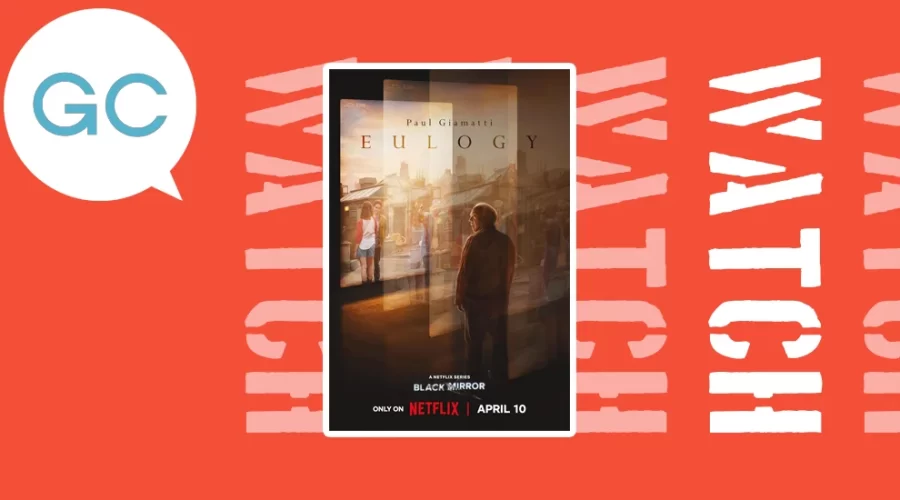One of the reasons why Charlie Brooker’s dystopian Black Mirror series has been a hit for years, in spite of the fickle nature of what’s considered cool and what gets to go viral, is that it plays on our very justified fears about the evolution of technology.
Human beings are addicted to tech, but also tend to have an abusive relationship with it. In the year 2025, we’re used to our data being sold, our privacy being breached, and our sense of reality being compromised.
Black Mirror’s most successful episodes are simply a logical extension of this messy state of affairs; and with that, Black Mirror manages to be both fantastical and acutely believable.
However, every once in a while, Black Mirror also shows us the beauty of high tech, how it can interlace itself with our emotions, how it can reveal us to ourselves, even how it can be a thoughtful companion and guide.
I am still stuck on Season 4’s “San Junipero,” for example – beautifully shot, an ode to love, and nostalgia, and the magic of the human consciousness itself, and how it can blossom within bits of data.
Brooker has stated that Season 7’s “Hotel Reverie” is a spiritual sequel to “San Junipero,” and these episodes do share a lot, from the dreamlike sense of place to the love affair anchoring their center.
However, if I were to pick my own spiritual sequel to “San Junipero,” it would be Season 7’s “Eulogy.”
“Eulogy” is less showy, for sure. It stars Paul Giamatti, so we immediately know that showy is not the point here, but raw scrapes of emotion and, as Giamatti’s most famous roles often demonstrate, plaintive regret.
Giamatti stars as a lonely guy named Phillip who once loved a woman named Carol, before they had a bitter breakup long ago. Carol has died recently, and her daughter has hired the services of a company called Eulogy, which advertises immersive memorials for the deceased.
As part of building Carol’s memorial, Phillip is invited to upload his memories of Carol via a cool looking kit and tech guide (which already doesn’t seem so far off, considering the fact that we have Neuralink, though I wouldn’t trust that technology farther than I can throw it, at least for the time being).
Phillip is able to alter his conscience and step into old photographs of him and Carol, and recollect what made their relationship so good and so special, before it came crashing down.
I’m not going to include any spoilers for you here, aside from pointing out that both Phillip’s side of the story and Carol’s side of the story diverge at some crucial points. It’s not just the fickleness of memory that the Eulogy kit reminds us of, it’s also the fact that anger and heartbreak can act like an impenetrable veil.
Phillip thought he knew Carol’s motivations, and felt justified in feeling bitter about their ending. What he uncovers is a story that’s far more complex and painful. While he was a tragic hero for some parts of it, he was also a villain in others. He just didn’t know it at the time.
But Phillip’s discovery is hopeful too, because it leads him to forgiveness, not just for Carol, but for the young man that he used to be. We’re all stupid when we’re young, and stupidity can lead to anger and thoughtless cruelty.
“Eulogy” reminds us to give each other, and ourselves, some grace.
Life is fleeting. Might as well forgive.
“Eulogy” is a far sadder story than “San Junipero,” but it also takes a more organic, visceral approach to death. It doesn’t attempt to lift the curtain, it just reminds us that love is real in spite of our collective doom, and it’s OK to give into it, even when it’s too late, maybe especially when it’s too late.
Giamatti’s acting is always on point, but his final moments in this episode were so perfect that they were almost unbearable. If this was a feature length film, they’d be throwing Oscars at him like kids with water balloons. His gift is playing characters who are completely vulnerable and crushingly relatable; as an actor he is the embodiment of an Emily Dickinson poem, unassuming right up until it cracks your heart open.
“Eulogy” is also a reminder that in the right hands and with the right amount of care, technology can help us hold up a mirror to ourselves (not always a black one either; sorry not sorry), and maybe even be surprised in the process.
There is no fear here, and no real dystopia. Just an understanding that with a little help, we can all come back to ourselves in the end.

